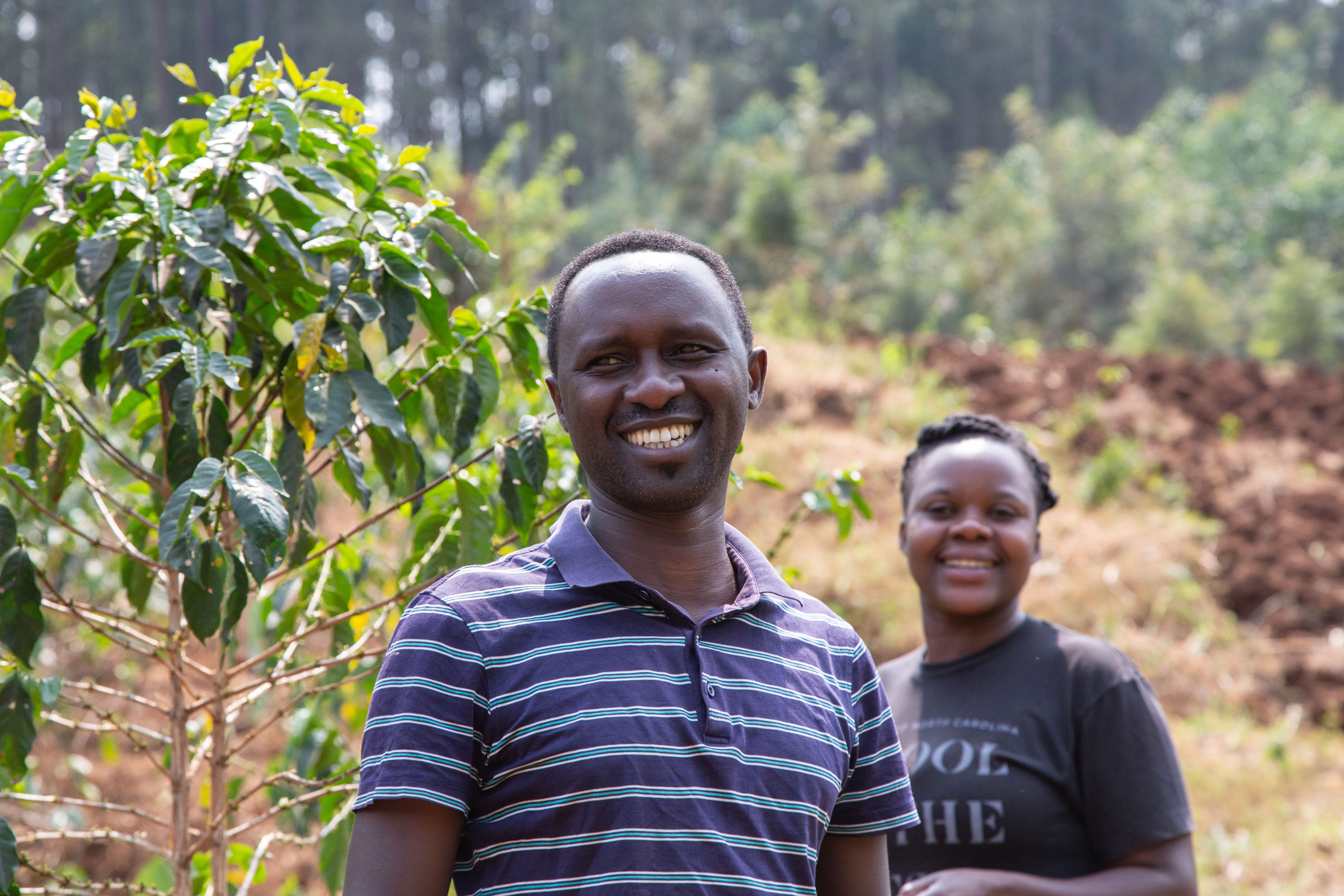Gisuma Coffee Cooperative
Gisuma Coffee Cooperative was originally founded in 2009 and formally registered in 2010 by a group of 56 women seeking to improve the livelihoods of their community. This cash crop has long been a popular farming choice in the Western Province, but with variable markets, and a reliance on a single harvest each year, there is a push amongst coffee communities to find new income streams.
Now managed by and incorporating men and women coffee farmers, Gisuma currently provides coffee washing and processing for 185 members, with 808 non-members also occasionally contributing. The Gisuma team emphasizes that there are many farmers in neighboring communities with coffee to sell, if the opportunity arose. In line with 75% of farming in Rwanda, many of these are smallholder farmers with less than 1 hectare of coffee trees, and so cooperatives like Gisuma are vital to the gathering, processing and selling of this crop.
Yet, market access is a considerable challenge for this Cooperative. Despite being recognized and paying for Fairtrade coffee status, the enterprise has struggled to access international markets.
Committed to creating new opportunities, expanding their income, and reducing waste, the leadership of Gisuma Coffee Cooperative is excited at the prospect of CIRF technical assistance provision. Their hope is that it will provide many new opportunities for business development, as well as protecting the environment.
Their first ambition is to find a solution for the waste coffee pulps, which they hope to turn into compost or vermicompost, which can then be sold at affordable prices to local coffee farmers.
They are also seeking connections that will allow them to expand their knowledge and understanding, as well as increase links to the market and access to finance.
The business employs four people as staff, and 30-40 casual workers on a seasonal basis.
They currently can process 350 tons of coffee cherries.

